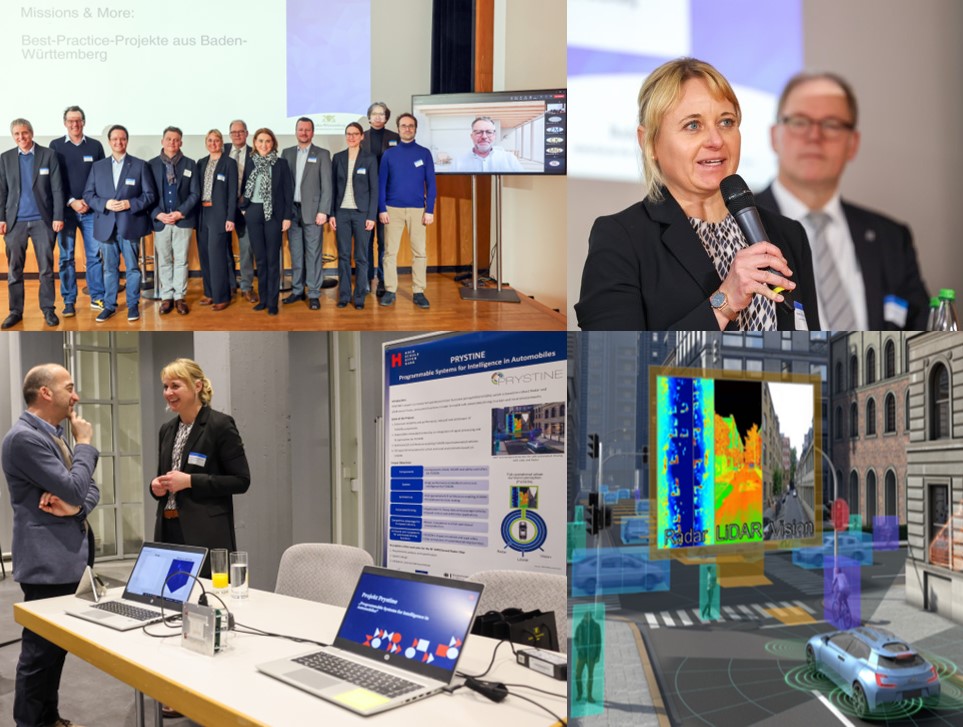At the event "New Beginnings - The Future of European Research Funding at Universities in Baden-Württemberg" on March 8 in Stuttgart, experts from science and politics discussed how they assess participation in the state to date and what impetus can be provided for the design of the tenth framework program.
The focus of the event in the "Haus der Wirtschaft" was the framework program for research and innovation "Horizon Europe". For 40 years, the EU has been promoting the fields of science and research with its own framework program. "Horizon Europe is endowed with around 95.5 billion euros over seven years. This makes it the world's largest single funding program in this area.
Universities in Baden-Württemberg are among the most successful in applying for and receiving EU research funding. Science Minister Petra Olschowski announced that Baden-Württemberg's universities have already received 320 million euros in funding. The funds are flowing into projects on innovations in AI and climate research, as well as projects on personalized cancer medicine.
In addition to the panel discussion, practical examples were presented that deal with future topics such as quantum technology or the social transformation process.
Prof. Marlene Harter presented the completed research project "PRYSTINE - Programmable Systems for Intelligence in Automobiles" in her pitch on "Projects within the ECSEL/KDT Joint Undertaking". A total of 59 European partners were involved in the project and received a total funding amount (EU and member states) of 28.33 million euros. The "PRYSTINE" project aimed to develop fault-tolerant 360° all-round perception based on radar and lidar for highly automated driving.
The sub-project of University of Offenburg is focused on the development of a future-proof RF-CMOS-based radar system that is characterized by high robustness and fault tolerance while simultaneously reducing costs, chip area and power consumption.
The University of Offenburg was involved in the specification and design of a system architecture for the innovative RF-CMOS-based radar chip as well as in the investigation and validation of the radar system implemented in the project.
A follow-up project has developed from the PRYSTINE project, which will soon be launched and in which University of Offenburg is also involved: "EdgeAI-Trust" (2024-2027, 53 partners) aims to develop a domain-independent architecture for decentralized Edge AI.
Over a lunchtime snack, the event participants were able to find out about best practice projects from Baden-Württemberg at the "Gallery Walk" stands.
Further details on the "Prystine" project can be found at: https://prystine.eu
